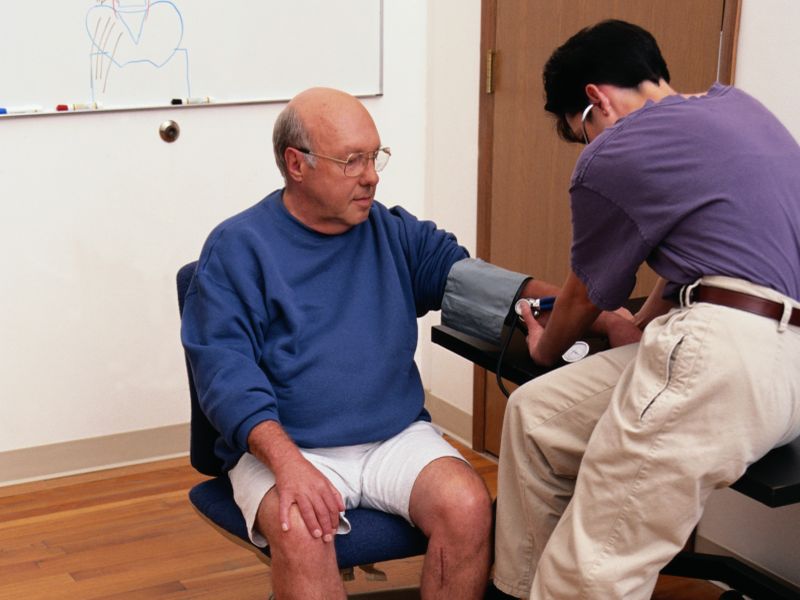

Many With Common Irregular Heartbeat Unaware of Stroke Risk
Study finds gaps in what patients know about atrial fibrillation
Wednesday, November 16, 2016


WEDNESDAY, Nov. 16, 2016 (HealthDay News) -- Nearly one-third of Americans newly diagnosed with the common heart rhythm disorder atrial fibrillation (AF) don't realize the condition puts them at increased risk for stroke, a new study finds.
The irregular heartbeat in AF patients can cause blood to pool, which can cause blood clots that can lead to stroke, researchers explained.
The study revealed misconceptions some patients had about atrial fibrillation.
"This helps us see gaps in knowledge and understanding," said lead author Emily O'Brien, from the Clinical Research Institute at Duke University in Durham, N.C.
O'Brien and her team surveyed 1,000 people diagnosed with atrial fibrillation in the past six months. Their median age was 69. About 63 percent strongly agreed that stroke is a major risk factor of atrial fibrillation. However, around 32 percent believed that heart attack is a major risk factor of AF, which is incorrect, the researchers reported.
Sixty percent of the patients said they understood the role of blood thinners to manage their disorder. Yet only a minority said they understood their options for blood thinners (30 percent), drugs that control heart rhythm (16 percent) and ablation, a procedure to destroy tissue in the heart causing abnormal rhythm (12 percent).
Just 13 percent of patients said their main source of information about atrial fibrillation was the internet, while nearly 73 percent said it was their doctor, the study revealed.
"We thought in this day and age, we would see a higher proportion relying on the internet or family and friends for information," O'Brien said in a university news release. "But an encouragingly high proportion are relying on their provider.
"We really want to make sure we avoid any misconceptions about the condition and how it's treated. This provides a good starting point for future interventions and education for patients in this group," she said.
The study was scheduled to be presented Monday at the annual meeting of the American Heart Association, in New Orleans. Findings released at meetings are usually considered preliminary until published in a peer-reviewed journal.
SOURCE: Duke University, news release, Nov. 14, 2016
HealthDay
Copyright (c) 2016 HealthDay. All rights reserved.
News stories are provided by HealthDay and do not reflect the views of MedlinePlus, the National Library of Medicine, the National Institutes of Health, the U.S. Department of Health and Human Services, or federal policy.
- More Health News on:
- Atrial Fibrillation
- Stroke



























.jpg)












No hay comentarios:
Publicar un comentario